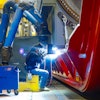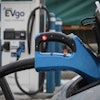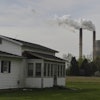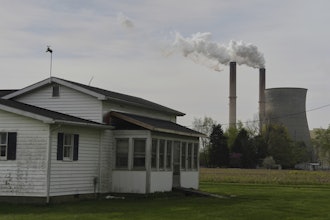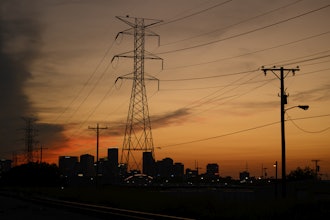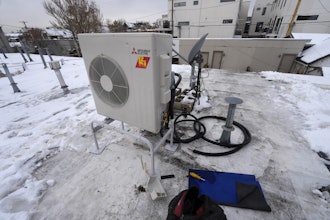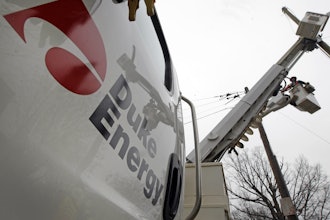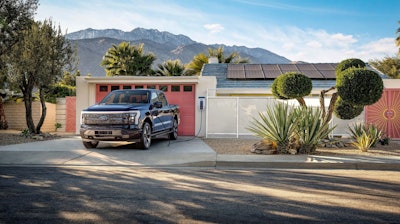
Duke Energy is looking at new ways customers in Florida may one day be able to use two-way, or bidirectional, charging from electric vehicles to power their own homes during outages and to help support the power grid.
The company will launch a research and development pilot program in the state to test and evaluate the viability of the new Ford F-150 Lightning all-electric truck's high-capacity batteries as a grid edge resource that could help transform the energy system.
As part of the pilot, Duke Energy will add approximately five Ford F-150 Lightning trucks to its Florida fleet and perform additional testing of the technology, with a focus on leveraging homes that have solar energy and stationary storage. Using the Ford Charge Station Pro and Intelligent Backup Power Home Integration System's bidirectional charging infrastructure, the company will perform extensive testing using the vehicles to feed and draw energy from the power grid. Vehicle-to-grid (V2G) integration will push and pull energy between the connected electric trucks and the grid in a bidirectional energy flow.
The pilot will focus on real-world use cases with the Ford F-150 Lightning to benefit the grid – such as how the vehicle interacts with other customer-owned distributed energy resources (like rooftop photovoltaic – or PV – solar and customer home batteries), how the truck's battery performs powering customers' homes during an outage, how the vehicles will be used to feed the grid during peak times of use, and how such usage might impact the trucks' batteries over time.
"We're continually testing clean energy innovations to gauge how they perform in complex real-life scenarios," said Lon Huber, Duke Energy's senior vice president of pricing and customer solutions. "Like our customers, we're excited about the prospects of these advancements, and we're working to evaluate them in controlled environments so we can find ways to maximize their value and benefits."

